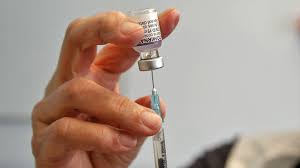During the worst days of the COVID-19 pandemic, I and nearly everyone I knew had a relative, friend, co-worker, neighbor or other acquaintance who died from the illness. Something similar happened during the AIDS crisis, before effective treatments came along: Between Memorial Day and Christmas of 1991, five people—including two good friends—were claimed by AIDS-related illnesses.
Lately, when I type “bicycle news” into a browser, I feel as if I’m getting a view of two other “pandemics,” if you will. The first one I’ll describe is, in its own way, as dire as—and, arguably, more preventable than—the COVID and AIDS epidemics. The other isn’t nearly so tragic, though it brings sadness and inconvenience to many.
Every day, it seems, there are more reports of cyclists killed or seriously injured when they are struck by— or more infrequently, strike—motor vehicles. Such incidents, which are often misnamed as “accidents,” are as often as not a result of poor road or bike infrastructure: For example, an intersection is configured, signals are timed (and dangerous laws enforced) so that cyclists cross directly into the path of turning vehicles.
(What I know about public health is on par with what I know about sub-atomic physics. So take what I am about to say for what it’s worth: If the Centers for Disease Control could declare—rightly, as they did—that gun violence in the US a public health crisis, the needless deaths of cyclists and pedestrians should also be so designated.)
The other, less catastrophic “epidemic” is part of the COVID pandemic’s fallout. As I and others noted, there was a “boom,” however brief, during the epidemic’s early days: Many people took up, or returned to, cycling while already-active cyclists like me rode even more than we’d already been riding.
Ironically, some shops (most notably Harris Cyclery, Sheldon Brown’s old home base) closed their doors because they ran out of bikes, parts, helmets and other related items just as nothing was coming through the supply chains. But even more shops—and manufacturers and suppliers of bicycles and related goods—fell victim during the past two years or so. In some cases, those companies ordered merchandise once supply chains opened up, but the ‘boom” went “bust.”
There were also other challenges. People who might have bought traditional bicycles in the recent past are now buying electric bikes. And among buyers of non-assisted bikes, tastes—and the ways people buy bikes and related goods—change.
But another iconic company faced another challenge: where they make their products. I suspect that had something to do with Mercian’s near-death experience last year: Their frames are built and finished by hand in high-wage, high-cost UK. (A group of local cycling enthusiasts purchased the company a few weeks after it ceased trading and re-hired the frame builders who’d been working there.) And location, location, location was cited in CEO Daniel Emerson’s announcement that Light & Motion, a California manufacturer of lights for cycling (and diving and photography) is ceasing operations.
One passage from his open letter, in particular, could have been a jab at President Joe Biden or President-elect Donald Trump, both of whom have talked about bringing manufacturing back to the US, albeit by different means: “[T]he political winds, regardless of the talk, have been against US manufacturing, which continues its decline.”
I’m no economist, but my guess, however uneducated, is that his announcement should be heeded as a warning: It will take more than rhetoric, an “inflation reduction act” or punitive tariffs to bring manufacturing, of bicycle lights or anything else, “back” to the US. For one thing, once companies like Light & Motion shutter, their resources and expertise move elsewhere—or are simply lost. Factories become condos and cannot be re-opened as manufacturing facilities. Also, even if the product—whether it’s a bike light or an iPhone—were to be made in some low-wage, low-tax, non-union state, they probably will need components made in China or other countries. (If you bought, say, a US-made Cannondale or Trek, almost everything hung on the frame—and, perhaps the material for the frame itself —came from somewhere else.)
So, I would say that the two “epidemics” I’ve mentioned—bicycle fatalities and the demise of bicycle-related businesses—and the ways in which the COVID and AIDS epidemics unnecessarily claimed lives, are both due, at least in part, to wrongheadedness or mendacity on the part of politicians and policy-makers.






